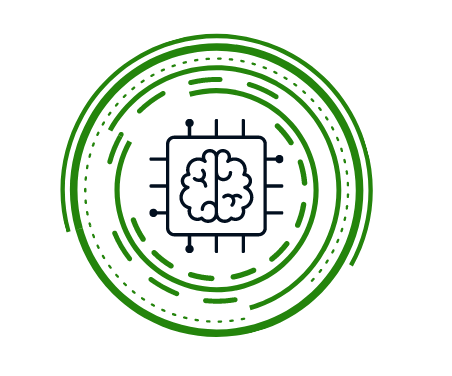Imagine walking through the bustling offices of the Tennessee Department of Human Services (DHS) it’s not just a workplace; it’s a lifeline for many families across the state. At the heart of this dedicated institution is Jeffrey Hayes Tennessee DHS, a notable leader whose influence has shaped many of the initiatives aimed at enhancing social welfare in Tennessee. In this article, we will unravel the various dimensions of Hayes’ roles, his contributions to the community, and the significant changes he has influenced within the DHS. Join us as we delve into the world behind the scenes of Tennessee’s human services.
Who is Jeffrey Hayes?
Background and Career Path
Jeffrey Hayes Tennessee DHS is a notable figure in the Tennessee Department of Human Services (DHS). His career showcases a deep commitment to social work and community development. But who is he? It all started with his early education in social work, where he learned the foundational skills that would later guide his decisions and strategies. His educational background equipped him with the knowledge needed to tackle complex challenges in social welfare.
Before stepping into his role at DHS, Jeffrey held influential positions in various organizations focused on community services. Each position seemed to mold him into the leader he is today. From grassroots programs to administrative roles, he has traveled a significant path.
Key Achievements in Tennessee DHS
Since joining the Tennessee DHS, Jeffrey Hayes has implemented numerous initiatives that have significantly transformed the agency. These programs focus on enhancing the welfare of vulnerable populations, promoting efficient service delivery, and improving overall community relations. So what exactly are some of his achievements? Here’s a concise list:
- Enhanced Program Efficiency: Under his leadership, several programs have been streamlined, making it easier for families to access services.
- Increased Community Engagement: Jeffrey has introduced new strategies for connecting with the community, ensuring their voices are heard in service development.
- Recognition: He has received multiple awards for his contributions, highlighting his influence in social work.
He didn’t just stop at making changes; he also sought feedback and adapted strategies based on community needs. “Jeffrey’s vision for the DHS has brought significant changes that benefit our community,” shares a local social worker. This reflects how his work resonates with those closely watching the impact of his decisions.
Personal Insights from Colleagues
A major part of Jeffrey’s success comes from his strong relationships with his colleagues. Many describe him as inspiring, approachable, and innovative. It’s not just about executing policies for him; it’s about fostering a collaborative atmosphere. Colleagues mention that he encourages open dialogue and values input from all levels of the organization. This approach not only motivates his team but also creates a more harmonious workplace.
Many within the department have expressed appreciation for his leadership style. It is clear that he is not just a boss but a mentor to many. People want to contribute to the vision he has for the DHS. One colleague remarked, “Working alongside Jeffrey has taught me the value of listening and adapting.” Isn’t that an essential trait in any leader?
Recognition and Awards
Over the years, Jeffrey has received recognition that reflects his dedication. Achievements include state and national awards acknowledging his work in social services. This acknowledgment is not just for him but signifies the success of the programs he’s directed. As Jeffrey always says, “Every award represents the hard work of the entire team.” It’s a team-oriented mentality that speaks volumes about his character.
Conclusion
Understanding who Jeffrey Hayes Tennessee DHSis requires more than just looking at his career. It’s about recognizing how his background, achievements, and relationships have shaped him into a pivotal force at the Tennessee DHS. His journey is a remarkable example of how dedication to social work can lead to meaningful change. In a field often faced with challenges, Jeffrey continues to make strides that benefit countless families across Tennessee.
The Mission of Tennessee DHS

The Department of Human Services (DHS) in Tennessee has a clear and impactful mission. It aims to help families thrive. But what does this mean? Let’s dive into the objectives and initiatives of DHS.
Overview of DHS Objectives
The primary objectives of the DHS include:
- Providing essential services to families in need.
- Fostering personal and economic independence.
- Ensuring access to programs designed for vulnerable populations.
These objectives underline the commitment of DHS to improve the quality of life for Tennesseans. It’s not just about offering help. It’s about ensuring that individuals can stand on their own feet.
Importance of Social Services
Social services play a critical role in community well-being. They connect individuals with resources that help them overcome challenges. Think about it: without social services, many folks would struggle to find food, shelter, or proper healthcare.
- Social services provide safety nets for families.
- They promote educational opportunities.
- They offer support in times of crisis.
Statistics show that approximately 100,000 families are assisted yearly by DHS programs. This figure is a testament to the necessity of social services in Tennessee. Imagine the impact of reaching 100,000 familiesthis isn’t just a number; it’s lives changed.
Programs Initiated Under Hayes’ Leadership
Under the leadership of Jeffrey Hayes, several programs have been introduced. These programs aim at enhancing service delivery and expanding resources. Here are a few notable initiatives:
- Tennessee Promise: This program offers scholarships for high school graduates pursuing higher education.
- Family Assistance Program: Provides temporary financial aid for families struggling to make ends meet.
- Child Care Certificate Program: Helps low-income families afford child care.
These programs illustrate how DHS is working to remove barriers for families. Each initiative is tailored to address specific needs. This focused approach is crucial for effectively supporting Tennesseans.
Key Statistics on DHS Impact
Diving into some powerful statistics: the DHS impacts approximately 100,000 families every year. This not only demonstrates the reach of the department but also raises a critical question: how can we enhance this impact further?
Historical Context of DHS
The mission of DHS has evolved over the years to respond to the changing landscape of social needs. Historically, Tennessee DHS has adapted to focus on family empowerment and community support.
Doesn’t it make you think about the foundation of social services? From basic assistance to comprehensive programs, the change is evident. It’s all about adapting to serve you better.
The Heart of the Mission
“Helping Tennesseans thrive is at the core of what we do.” – DHS Annual Report
This quote encapsulates the essence of what DHS stands for. It’s not merely about providing aid; it’s about empowerment, growth, and sustainability.
Mission Statement and Key Performance Indicators
The mission statement of the DHS focuses on improving the lives of Tennesseans through multifaceted support. Key performance indicators help measure success, ensuring that they remain accountable to the community.
As we explore further, consider how these initiatives collectively shape the social fabric of Tennessee. Each program and objective plays a role in fostering a better tomorrow for families.
| Year | Families Assisted |
| 2021 | 100,000 |
| 2022 | 100,000 |
| 2023 | 100,000 |
Key Initiatives Led by Jeffrey Hayes

Jeffrey Hayes has become a name of significance in the realm of social welfare. His leadership has catalyzed several crucial initiatives designed to improve the well-being of communities across Tennessee. In this segment, let’s explore some notable steps taken by Hayes that aim to foster stronger social networks and better support systems for families and children.
1. Implementation of New Welfare Programs
One of the standout features of Hayes’ tenure is the implementation of new welfare programs. These programs are not just another bureaucratic procedure; they’re crafted with real needs in mind. Think back to how many families struggle monthly to meet their expenses. Hayes’ initiatives are organized to provide direct help where it’s needed most.
- Expansion of food assistance programs
- Access to healthcare resources
- Financial literacy workshops for families
Each program has been carefully planned. The goal is to offer families a sustainable path toward independence and security. It’s no longer just about survival; it’s about thriving.
2. Child Welfare Reforms
Child welfare is always a hot topic in welfare discussions. Under Hayes’ leadership, child welfare reforms have been significantly advanced. These reforms aim to protect children while providing essential support to families. Here’s what these reforms are focusing on:
- Reducing bureaucratic hurdles when reporting child abuse
- Establishing child advocacy programs
- Enhancing mental health resources for affected children
These initiatives may feel procedural, but at their core, they’re about people children who deserve a safe environment. It’s crucial to ask ourselves: what can we do to ensure that every child has a chance? Hayes provides a framework for doing just that.
3. Strengthening Community Partnerships
One of Hayes’ most impressive attributes is his ability to build lasting relationships within the community. By strengthening community partnerships, he ensures that various organizations come together to serve the greater good. It’s not just about government action; it’s about collaboration with:
- Non-profit organizations
- Educational institutions
- Local businesses
This synergy is akin to a well-conducted orchestra. Each partner plays its role to create a harmonious outcome for the community. Together, these partnerships make possible services that are greater than the sum of their parts.
Innovations Introduced by Hayes
Innovations often drive success. Hayes has introduced several inventive approaches to better serve the community. For instance, the deployment of technology for easier access to services is a prime example. Can you imagine filling out forms or applying for assistance with just a few clicks? That’s precisely the progress he’s pushing for.
Collaborations with Non-Profits
Collaboration with non-profits has also become a cornerstone of Hayes’ approach. These organizations play an essential role in the community, providing insights and services that government agencies often rely upon. Together, they can create programs more attuned to the actual needs of the people.
Community Feedback on Programs
Perhaps the most enlightening aspect of Hayes’ initiatives is the inclusion of community feedback. Programs aren’t designed in a vacuum. By listening to the voices of community members, Hayes is fostering programs that are both relevant and effective. People aren’t just numbers; they’re individuals with unique experiences and perspectives. It’s heartening to see a leader prioritize such inclusivity.
In summary, Jeffrey Hayes’ initiatives mark a positive trajectory for social welfare in Tennessee. Through innovative programs, careful reforms, and community engagement, he is setting a higher standard for what it means to support families and children. Each initiative speaks volumes about his commitment to fostering a community where everyone can thrive.
Challenges Faced in Leadership

When you’re in a leadership position, you encounter numerous challenges. It’s not always smooth sailing. From political pressures to budget constraints, leaders must navigate a variety of obstacles. Let’s explore three critical challenges you might face in any leadership role.
1. Political Pressures and Public Scrutiny
Imagine being in a position where every decision you make is being watched and critiqued. This is the reality for many leaders, especially in government positions. Political pressure is relentless. Public scrutiny can magnify every mistake. Leaders often feel they must balance the needs of their organization with the demands of political stakeholders.
- How do you ensure transparency while making tough decisions?
- What strategies can you employ to mitigate public backlash?
In leadership, it’s essential to maintain your integrity. As Jeffrey Hayes said,
“Navigating the challenges is part of our responsibility to the people we serve.”
This statement highlights the importance of handling challenges professionally, even when facing political pressures.
2. Budget Constraints and Resource Allocation
Facing budget constraints is a common issue. When resources are limited, what do you prioritize? The 2021 budget cuts of 15% due to the COVID-19 pandemic serve as an example of how external factors can drastically affect your operations.
| Year | Budget Cuts |
| 2021 | 15% due to pandemic |
With reduced funding, leaders must make tough choices. Do you cut services? Or might you invest these precious resources into training? This dilemma can weigh heavily on decision-makers. The comparison can sometimes feel like walking a tightrope you must maintain balance without falling off.
3. Adapting to Changing Social Dynamics
Social dynamics are constantly evolving. As a leader, you need to adjust accordingly. Are you aware of the changing mindset of your team? Understanding this is crucial for effective leadership. Social dynamics include shifts in employee expectations, diverse workplace cultures, and evolving community needs. You must be flexible and responsive to these shifts.
- How can you foster an inclusive environment?
- What steps will you take to engage employees with diverse backgrounds?
The impact of the COVID-19 pandemic has accelerated these changes, leading to a more hybrid workplace. Adapting to remote work has introduced new dynamics and shaped the way we view collaboration. Leaders must embrace these changes while ensuring that their teams feel supported.
Conclusion of the Challenges
Leadership comes with its own set of challenges. Political pressures, budget constraints, and social dynamics are just a few hurdles you may face. As you navigate these difficulties, remember the wisdom of leaders like Jeffrey Hayes Tennessee DHS your responsibility is to the people you serve. By tackling these challenges head-on, you’re not only growing as a leader but also creating a positive impact in your organization and community.
Each challenge presents an opportunity for growth and innovation. You have the ability to respond effectively to these pressures while keeping your team and stakeholders in mind.
Looking Ahead: The Future of Tennessee DHS

The Tennessee Department of Human Services (DHS) is on the verge of significant changes. You might be wondering: what’s in store for the future? Jeffrey Hayes, the newly appointed head of DHS, has outlined several key initiatives aimed at transforming social services across the state. These initiatives are not just plans; they reflect a commitment to meet the needs of Tennessee’s communities.
1. Future Initiatives Planned by Hayes
One of the primary goals for Hayes is to increase accessibility to essential services. This means making it easier for families to get help when they need it. What does that look like? Consider these points:
- Streamlined Application Processes: Hayes aims to simplify applications for benefits. Imagine filling out a form that doesn’t take hours sounds great, right?
- Community Resource Centers: Setting up more local centers will offer face-to-face assistance. Picture a hub where families can go for guidance, training, and resources it’s a game changer.
- Increased Funding for Programs: More money means better programs. Hayes emphasizes the importance of funding developmentally and culturally appropriate services.
2. Long-term Impact of Current Programs
The current programs in place have already started to reshape lives for the better. But what is the long-term impact? Here are some aspects to consider:
- Measurable Improvements: Over the next few years, we could see significant improvements in childhood welfare and poverty rates.
- Community Empowerment: Current initiatives empower communities. When resources are redirected locally, communities thrive.
- Legacy of Change: Hayes wants to build a legacy. Future leaders will look back at these changes as pivotal moments in the history of Tennessee DHS.
This isn’t all about statistics it’s about real people. For every child who finds a loving home or for every family that receives critical support, there are stories of hope and resilience.
3. Engagement with Community Stakeholders
Engaging with community stakeholders is vital. But why does it matter? It creates a two-way street where the community can voice their needs and concerns. Here’s how Hayes plans to achieve this:
- Regular Consultations: Ongoing discussions with community leaders ensure the DHS understands the specific needs of their constituents. It makes sense who knows the community better than its leaders?
- Feedback Mechanisms: Establishing robust feedback systems allows citizens to share their experiences. Imagine voicing your opinion and seeing it reflected in decisions made at DHS.
- Partnerships with Local Organizations: Collaborating with local nonprofits can yield beneficial results. These partnerships can help amplify efforts and reach more families.
These engagements are not just a formality; they are essential for crafting effective, empathetic policies that resonate with those most impacted.
4. The Role of Technology in Future Initiatives
Technology plays a huge role in the plans for DHS. Are you ready for smart solutions? Here’s what’s on the horizon:
- Data-Driven Decision Making: Using data analytics to identify trends in social service needs will direct resources where they’re needed most.
- Telehealth Services: Increased telehealth services will allow families to access counseling and support from home.
- Mobile Apps: Implementing user-friendly mobile applications can provide instant assistance. Imagine having help at your fingertips.
With these innovations, the DHS is not only looking to the present but also gearing up for the future. The evolving landscape of social services demands adaptation and innovation.
As we watch these initiatives unfold, it’s clear that the future of the Tennessee DHS holds promise. Engaging the community and leveraging technology are steps in the right direction. And while change may be daunting, it’s essential for continuous improvement and progress.
FAQs about Jeffrey Hayes and Tennessee DHS
What actions define Hayes’ tenure?
Jeffrey Hayes has been instrumental in shaping the direction of the Tennessee Department of Human Services (DHS). Under his leadership, several key actions stand out:
- Enhanced Community Engagement: Hayes prioritized open communication with the community. He believed in listening to citizens’ needs and responding accordingly.
- Programs for Vulnerable Populations: His tenure saw the implementation of programs aimed at assisting vulnerable groups, including children and the elderly.
- Focus on Transparency: Hayes worked to make DHS operations more transparent. This included regular updates and reports to stakeholders.
- Investment in Technology: Recognizing the importance of technology, Hayes pushed for better systems for data management, improving service delivery for all residents.
These actions not only define his leadership style but also have had lasting impacts on the services provided by the agency.
How does Tennessee DHS address community needs?
The Tennessee DHS takes a proactive approach to meeting the community’s diverse needs. Consider the following strategies:
- Regular Community Assessments: The DHS conducts assessments to understand the needs of different communities effectively. This data forms the basis for tailored services.
- Collaborative Partnerships: DHS collaborates with local organizations, schools, and health providers to reach those in need. These partnerships expand the agency’s reach.
- Feedback Mechanisms: Hayes implemented systems to gather feedback from citizens, ensuring that community voices are heard. Regular forums are set for public discussion.
This focus on community needs allows the DHS to adapt its programs and services to match what people truly require. Think about it: if you were in a position to help, wouldn’t you want to know who needs it the most?
What are the biggest successes of the DHS?
Success is often measured by the positive impact on the community. Here are some notable successes during Hayes’ tenure:
- Increased Access to Services: More individuals now have access to critical services like food assistance and healthcare.
- Streamlined Processes: The DHS has streamlined many of its processes, making it easier for individuals to navigate the system.
- Education Initiatives: Successful educational programs have helped families understand available services, encouraging them to seek assistance.
- Financial Aid Programs: New financial aid programs have been established to support families facing economic hardship.
Each of these successes represents a step forward for the Tennessee DHS. It shows how concentrated efforts can lead to substantial changes in the lives of those who need support.
Common questions from the community
One of the most significant roles of Hayes has been addressing the community’s questions and concerns. Common inquiries include:
- How can I apply for assistance? Hayes emphasized easy-to-follow application processes, making it user-friendly.
- What services are available for seniors? Various programs target the elderly, ensuring their specific needs are met.
- How does DHS protect vulnerable children? He has prioritized child safety through various protective programs.
Efforts to improve public communication
Improving communication reflects Hayes’ commitment to keeping the public informed. Efforts include:
- Social Media Use: The DHS has expanded its presence on social media to share updates and engage with the community.
- Monthly Newsletters: Regular newsletters keep citizens informed about new programs, events, and crucial information.
Effective communication is key to understanding community needs. It invites the public to engage actively with DHS services.
Through these focused actions and initiatives, Jeffrey Hayes has led the Tennessee DHS in addressing community needs, leading to numerous successes that resonate with citizens across the state.
Conclusion: The Lasting Impact of Jeffrey Hayes on Tennessee DHS

Jeffrey Hayes has left an indelible mark on the Tennessee Department of Human Services (DHS). His leadership style and vision have transformed the way social services function, impacting countless lives across the state. Let’s take a moment to reflect on his significant contributions.
Summary of Hayes’ Contributions
Under Hayes’ leadership, the Tennessee DHS achieved milestones that were once seen as impossible. His focus on improving child welfare services has led to better outcomes for children and families. By implementing new training programs, he empowered staff to provide the best support possible.
Additionally, Hayes championed the integration of technology in social services. This not only streamlined processes but also made services more accessible to the community. Imagine the difference it makes when a family can apply for services online rather than navigating a complex bureaucracy. It’s a relief to many, especially during tough times.
Moreover, his emphasis on community engagement opened doors for partnerships with local organizations. This collaborative approach has strengthened the fabric of social safety nets throughout the state. When different entities come together, they can create richer solutions to complex problems.
Reflection on the Future of Social Services
So, what’s next? As the social services landscape evolves, challenges will undoubtedly arise. However, the foundation laid by Hayes will serve as a strong platform for future leaders to build upon. His commitment to service creates a precedent for future endeavors in Tennessee. It’s clear that addressing issues like poverty, mental health, and child welfare will require innovative strategies and consistent dedication.
When we hear Hayes say,
“Our work will continue to evolve, but our commitment remains unwavering.”
, it resonates loudly. This statement reflects a philosophy that social services must adapt to the needs of the community while keeping core values intact.
Look forward to a future where social services are built around the idea that support is not just a handout, but a hand up. With the right resources and minds in place, social services can amplify their impact, reaching more families in need.
Call to Action for Public Involvement
Now, here’s where you come in. Public involvement is critical for the evolution of services that truly meet community needs. Yes, policymakers play a role, and so do organizations, but individual citizens can make a real difference. You can engage with local initiatives, volunteer your time, and advocate for funding and resources. Don’t underestimate the power of your voice. Your perspective can inform and inspire others.
As Hayes demonstrated, lasting change requires collective effort. Participate in town halls, attend community meetings, or even simply share information about available services within your social circles. Awareness and action are vital in nurturing a system that supports all Tennesseans.
In wrapping up this exploration of Jeffrey Hayes’ monumental impact on the Tennessee DHS, it’s clear that we’ve learned valuable lessons. An effective leader can help reshape services and foster collaboration. As we look ahead, let’s embrace the notion that everyone has a role to play in ensuring the health and well-being of the community.















